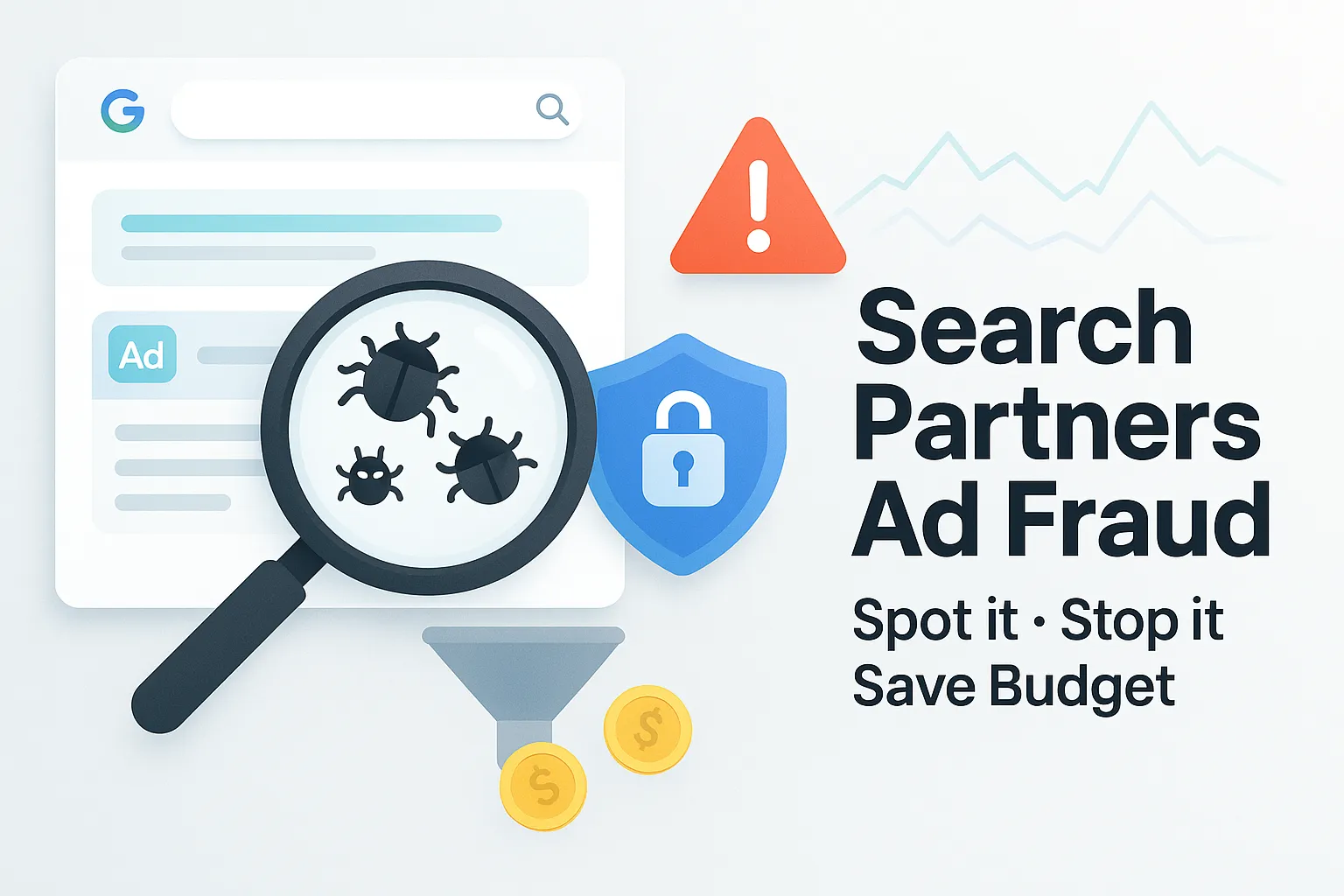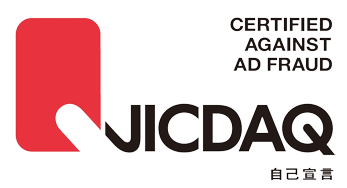How The Lack Of Advertisement Performance Transparency Is Costing You Millions

Big tech companies like Google, Facebook, and Microsoft have been facing criticism for their lack of transparency when it comes to ad fraud.
Ad fraud is a major issue in the digital advertising industry, and it costs businesses billions of dollars every year. In fact, ad fraud is set to cost businesses $100 billion in 2023 alone.
Ad fraud refers to any activity that generates fraudulent clicks or impressions on an ad, without any actual engagement from a real user. This can include bots, click farms, or other fraudulent techniques.
Ad platforms aren’t protecting advertising campaigns from ad fraud. That’s a fact.
We know this is true as we save thousands for our customers each and every month. But, Google, Facebook, and the rest, all maintain that they do enough to combat invalid and fraudulent clicks. With this being easily disproved, it begs the question: What else are they not being transparent about?
A Black Box Of Information
The problem with tech giants like Google, Facebook, and Microsoft is that they are increasingly asking marketers to trust them when it comes to ad fraud prevention, but they don't provide complete access to all their data. This lack of transparency can make it difficult for marketers to determine the effectiveness of their advertising campaigns and to detect fraudulent activity.
Big tech companies are like a black box of information when it comes to ad fraud. They have access to vast amounts of data on user behavior, and they use this data to optimize advertising campaigns. However, they don't always share this data with advertisers, which can make it difficult for them to understand how their campaigns are performing.
Another problem with the lack of transparency from big tech companies is that they don't always provide the right refunds for fraudulent activity. If an advertiser detects ad fraud, it can be a hassle to claim back their losses. They have to prove that the fraudulent activity occurred and provide evidence that it was caused by the big tech company's platform. This can be a time-consuming and costly process, and many advertisers simply give up on trying to claim back their losses.
It’s much easier to be proactive and have an ad fraud solution in place to look out for your campaigns. Yet, many advertisers argue that they shouldn’t have to invest in additional protection from something the ad platforms should tackle in the first place.
The lack of transparency from big tech companies is not just a problem for marketers; it's a problem for consumers as well. When advertisers are defrauded, they have less money to invest in creating high-quality ads that are relevant to consumers. This can lead to a proliferation of low-quality ads that are irrelevant and annoying to users.
The cycle of ad fraud that perpetuates the web needs to be a higher priority for all, and this is something that many advertisers have lobbied for since as early as 2008.
Calls For Greater Transparency
There have been many calls for greater transparency from big tech companies when it comes to ad fraud. Some industry experts have suggested that companies should be required to provide advertisers with complete access to all their data, so they can monitor their campaigns and detect fraudulent activity. Others have called for a standard set of guidelines and best practices for ad fraud prevention that all companies should adhere to.
Advertisers argue that Google has the resources and technology to identify and prevent ad fraud, but that it is not doing enough. Some have accused Google of prioritizing its own revenue over the interests of its advertising customers. It’s easy to see why, when the most successful cases of getting a refund for fraudulent traffic have been via court order.
Google has responded to these concerns by introducing a range of measures to combat ad fraud, including automated filters and manual reviews. However, some advertisers argue that these measures are not sufficient, and that more needs to be done to protect against ad fraud. They continue to call for greater transparency and more robust measures to combat ad fraud in order to ensure a fair and effective advertising ecosystem.
The Increase Of Automation
The lack of control advertisers feel towards their marketing campaigns has been increased due to the rise of automation. While automation itself is great for monotonous tasks and helps to speed up day-to-day marketing efforts, it presents a few issues.
Let’s look at Google specifically. Google is notorious for making off-the-cuff changes that leave marketers scrambling to catch up. What worked on a Monday morning can be completely different by the next afternoon, with no forewarning.
This has created a culture of “you say jump and we ask how high” when it comes to Google’s relationship with advertisers as, at the end of the day, Google has a platform that millions of businesses rely upon.
However, this unbalanced dynamic combined with a general lack of trust, is what leads advertisers to feel wary when they’re continually pushed into automated solutions that remove their control.
For example, when Google stated that Responsive Search Ads are better than Expanded Text Ads, you have to take their word for it as you now can’t create ETAs even if you wanted to.
So, while automation can be highly efficient, when coupled with ignored problems such as ad fraud, it makes you wonder whether Google really does have marketers’ best interests at heart.
The Benefits Of Knowing Your Data
We know that ad platforms such as Google Ads aren't going to change, and so it’s up to advertisers to implement the right ad fraud solutions to protect their accounts.
But, once you have ad fraud protection in place, you can begin reaping the rewards of working with clean data. Let’s take a look at what they are:
Improved targeting: Valid click data can help you better understand who is clicking on your ads and where they are coming from. This information can be used to refine your targeting and ensure that your ads are reaching the right audience.
Increased ROI: By analyzing valid click data, you can identify which ad campaigns are performing well and which ones are not. This allows you to allocate your budget more effectively and maximize your return on investment.
Better ad placement: Valid click data can help you identify which ad placements are generating the most clicks and conversions. By focusing on these high-performing placements, you can increase your chances of success.
More accurate reporting: Valid click data can ensure that your reporting is accurate and reliable. This can help you make better decisions about your ad campaigns and provide more meaningful insights to stakeholders.
Start Looking Out For Your Own Campaigns
In conclusion, the lack of transparency from big tech companies when it comes to ad fraud is a major issue that needs to be addressed.
Marketers should have access to all the data they need to monitor their campaigns and detect fraudulent activity. Big tech companies should also provide the right refunds for fraudulent activity, and make it easier for advertisers to claim back their losses.
But, we know this isn’t going to happen anytime soon.
So, the smart thing to do is to look into how ad fraud is affecting your campaigns yourself. You can easily get started with a free trial of an ad fraud solution like Spider AF. It takes just a few minutes to get set up, and then your campaigns will be fully protected from every type of invalid click.
Then, you’ll be part of the group of advertisers who are taking a stand against fraudulent traffic, and big tech’s lack of transparency into these issues.
FAQ about Advertisement Performance Transparency
What is ad fraud and how does it impact online advertising?
Ad fraud is a type of scam where fraudulent clicks or impressions are generated on digital ads, without any real engagement from a human being. This deceitful activity inflates ad performance metrics and can significantly diminish the effectiveness and ROI of online advertising campaigns, costing businesses substantial amounts of money.
Why is ad fraud detection important for marketers using programmatic advertising?
Ad fraud detection is critical in programmatic advertising because it helps identify and eliminate invalid traffic, ensuring that ad spend is used effectively. Without proper detection and prevention measures, marketers risk wasting a significant portion of their media budget on ads that are never seen by potential customers, which can also skew analytics and decision-making.
How can advertisers safeguard their online ad spend against digital ad fraud?
Advertisers can protect their online ad spend from digital ad fraud by implementing specialized ad fraud protection solutions that monitor and filter out invalid traffic. By doing so, they can ensure that their budgets are invested in reaching genuine users, thus improving campaign performance and ROI.
What challenges do advertisers face with digital inventory from major platforms in terms of brand safety and fraud?
Advertisers often struggle with ensuring brand safety and mitigating fraud within their digital inventory on major platforms. The platforms' opaque practices and limited data sharing can hinder advertisers' ability to fully understand where their ads appear and how their budgets are being spent, which is vital for maintaining brand integrity and campaign efficacy.
Why is ad fraud detection not enough to combat fraud in in-app advertising?
While ad fraud detection is a necessary tool, it often falls short in in-app advertising due to sophisticated fraud techniques like click injection that can bypass standard detection methods. Continuous evolution and enhancement of fraud detection technologies are required to keep pace with the ever-changing tactics of fraudsters.
How does artificial intelligence contribute to combating digital advertising fraud worldwide?
Artificial intelligence plays a pivotal role in fighting digital advertising fraud worldwide by automating the process of detecting and responding to suspicious activities. AI algorithms can analyze vast data sets at scale to identify patterns indicative of fraud, enabling quicker and more effective prevention strategies.
Are there any regions that are more affected by ad fraud rates, such as the Asia-Pacific region?
Yes, the ad fraud rates can vary by region, and reports, such as those from Juniper Research, suggest that the Asia-Pacific region is particularly susceptible to high levels of ad fraud due to its large and diverse digital ecosystem, which can make enforcement and regulation more challenging.
How does the World Federation suggest improving transparency in digital ads?
The World Federation and other industry bodies advocate for greater transparency in digital ads by calling for comprehensive access to data and the implementation of standardized ad fraud prevention guidelines that all advertising platforms should follow to foster an environment of building trust among all stakeholders.
Can you explain how automated decision making affects digital advertisers?
Automated decision making can significantly impact digital advertisers by limiting their control over campaign decisions and potentially obscuring the visibility of ad performance. While automation can increase efficiency, it may also inadvertently contribute to issues like ad fraud if not carefully monitored and managed.
What are some final thoughts on the current state of ad fraud in the digital marketing industry?
Final thoughts on the current state of ad fraud in the digital marketing industry suggest that while strides have been made in fraud detection and prevention, there's a clear need for increased transparency and accountability from major ad platforms. Advertisers must remain vigilant and proactive in safeguarding their campaigns to ensure that their investments yield legitimate and profitable engagements.



















